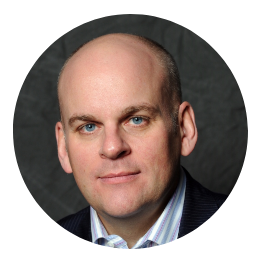
Interview with Claude Pinard

Claude Pinard is the Executive Director of the Mirella & Lino Saputo Foundation, a private family foundation based in Montreal. The Foundation is dedicated to improving the social and economic situation of people with disabilities, the elderly and immigrants. Over the past 30 years, Claude has perfected his skills in communications, public relations, philanthropy, marketing and management of professional sports in both the private and public sectors. He is currently Board President of the Maison de l’innovation sociale au Québec and Board member of Philanthropic Foundations Canada (PFC) and of the SIX Global Council based in London, England. He is also a member of the consultation committee of the Initiative Impact Canada.
Interview by Jennifer Fils-Aimé, PhiLab Quebec student
Jennifer Fils-Aimé (JFA): Can you describe the work you do at the Mirella and Lino Saputo Foundation for people with disabilities and the elderly?
Claude Pinard (CP): We aim high in our vision for people with disabilities and the elderly. We have developed several initiatives and are trying out different formulas that help us push our reflections even further and that encourage collaborations between philanthropic actors. We work within a societal change framework. We aim for large-scale solutions with our efforts to support the sector and focus on autonomy, longevity, innovation, and collaboration. We offer financial support while also staying close to the projects themselves, to be able to adjust support and ensure groups reach their desired results.
JFA: In your opinion, why is this cause so underserved in Quebec?
CP: Only a very low percentage of philanthropic funds are dedicated to issues related to the elderly and to people living with a disability. These groups do not seem to attract the attention of grantmaking foundations despite the fact that they intervene with other groups and issues on similar dimensions: access to services, seeking equity, fighting against discrimination, abuse, isolation, etc. There is also the question of philanthropic trends: the trending social issues or big events tend to attract more attention. Despite the drama the elderly and disabled people must face, the public harbours less sympathy for them.
JFA: What are your solutions to change this situation?
CP: We work with community organizations that are active in the sector as well as governments, and focus on collaborating with other grantmaking foundations who work in the same areas as we do, or on similar projects. These alliances allow us to expand our network and learn from the different actors being mobilized for the cause. We believe that civil society must be at the center of the strategies taken to solve the issues we are facing. We work hand in hand with our partners to place civil society on the center stage regarding the changes that must be implemented. We are present in the public arena and work closely with research networks, such as PhiLab. One of our current projects is to host virtual panel discussions to discuss with other members of the philanthropic ecosystem relating to the elderly to have a better grasp of the challenges we must overcome and find solutions as a collective.
JFA: What have been your strategies in connecting with current and potential grantees?
CP: Before the pandemic, we like approaching people at fundraising events. We were active on many working committees, which helped us identify potential grantees. We now realize we will have to adapt to the new reality and change our ways. In general, we prefer a more direct approach in our conversations, which helps us establish long-term relationships based on trust, which is very important to us. Often enough, grantees approach us after being referred by another organization or foundation.
Our current grantees are bold, they know their domain, the population they serve, its needs and issues. These individuals are ready to work with new approaches and in different frameworks. We hope they never find themselves in a situation in which they feel they are in competition with each other. We work together to foster a trust-based environment by keeping an open mind, being available and sincere. Evidently, we have the same expectations of our partners.
JFA: How has COVID-19 impacted your foundation and its cause? What are your thoughts for the future?
CP: COVID-19 had very little impact on our small team, as it was very easy for us to adjust to working remotely. However, the workload has significantly increased since the pandemic. We have received many more calls and meeting requests from our target areas.
We have also developed an even closer relationship with our donees. We are constantly in contact with them to ensure they have the capacity to face the many new challenges. With our partners, we are even more flexible than before regarding our financial support, timelines and project adjustments. We are all adapting to the new normal together.
Many organizations that catered to the elderly have ceased their activities, even though the needs have increased. The past few months have accelerated the work of some organizations that were already thinking about their future. Concerning the disabled, this period has revealed the importance of living environments for the public at large, including the elderly.
We envision a future based on progress. There is much to be rebuilt in how we care for the elderly. We must identify new partners to make sure these latter receive the services they need. This step is already in progress. Concerning people with disabilities, we are witnessing a growing momentum, not only in Quebec, but in Canada at large. For example, the recent Federal Speech from the Throne clearly covered the issue of disabled people living in poverty. This group of people had been initially forgotten in the first governmental responses to COVID-19. Since, this population has attracted the attention of decision-makers, which is encouraging. Beyond the existing programs, we must also shift the discussion towards legislation. We are currently participating in the creation of a National discussion forum to help move this cause forward.
JFA: Thank you Claude Pinard.
This interview with Claude Pinard of the Mirella & Lino Saputo Foundation was written for PhiLab’S Special Edition “The Invisible Causes of Philanthropy”. We strongly encourage you to share your reactions to this interview to feed the debate. You can write to us at philab@uqam.ca .

